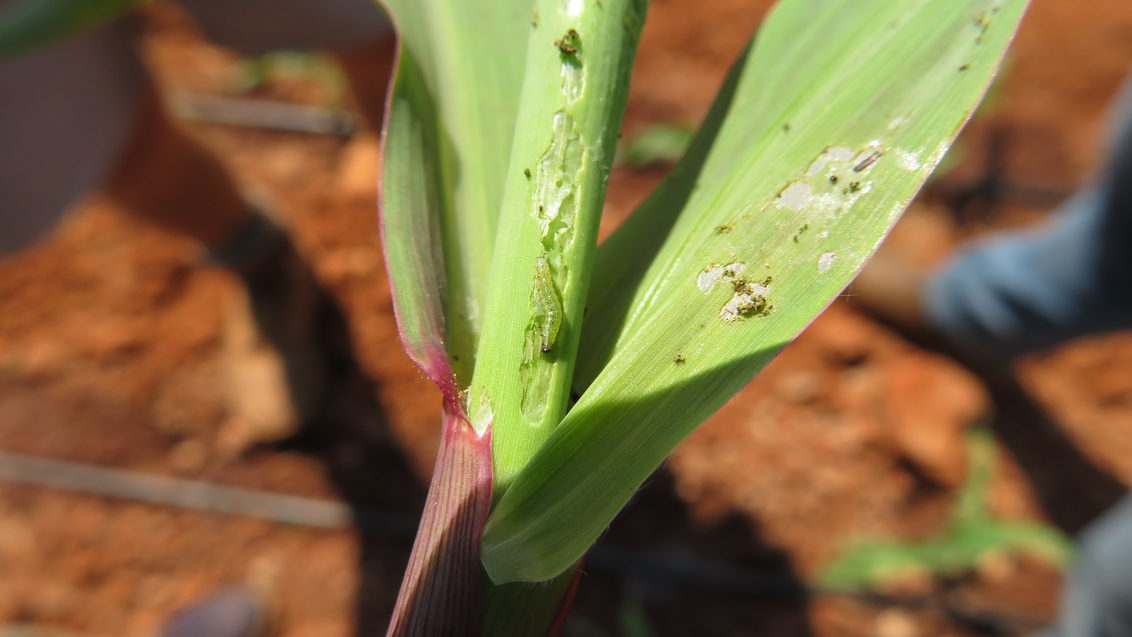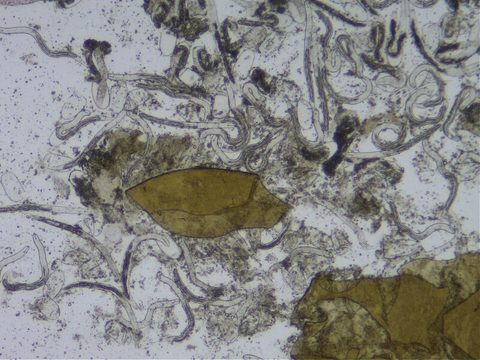The woman in the war against fall armyworm

The woman in the war against fall armyworm
Far from making her squirm, insects ignite a passionate curiosity in Desireé van Heerden. This quality has earned the insecticide technical lead for Syngenta Africa Middle East respect in local entomological and chemical circles. Evidence of this is the service to the industry award she recently received from the Association of Veterinary and Crop Associations of South Africa (AVCASA).
Desireé was recognised for the sterling work she does as chairperson of the Insecticide Resistance Action Committee (IRAC), and her efforts in gathering and sharing information on the fall armyworm.
During thisyear, Desireé visited numerous farms with Syngenta and Laeveld Agrochem agents in response to product complaints “Growers were concerned that our products were not controlling bollworm. However, our inspections revealed the problem to be fall armyworm,” says Desireé.
Realising the significance of this development, Desireé took action.
She kept a photographic record of the farm visits, and incorporated this material into the fall armyworm data sheet she compiled and shared with her Syngenta colleagues, IRAC, the Department of Agriculture and the wider agricultural industry, both within and outside South Africa. International bodies that benefitted from her work included the Food and Agriculture Organisation (FAO) of the United Nations, the Centre for Agriculture and Bioscience International (CABI) and USAid.
“The advance warning we got was fortunate,” says Desireé. “A colleague of mine, Johan Dreyer, spends much of this time in Zambia and kept me up to date with what was happening there. As a result we had time to gather information and understand the pest before it moved across our borders.”
Over the past season, fall armyworm has been very active in Malawi, Zambia, Swaziland and the far northern regions of South Africa. The pest migrates southwards, placing South African growers in the path of disaster. Its prevalence is influenced by weather patterns, but its arrival was inevitable due to a lack of knowledge, equipment and control options in our neighbouring countries.
Desireé confirms that fall armyworm is a destructive pest. “It is particularly challenging to deal with due to the extremely short control window. One has to get to the larvae before they reach their third life stage, which is one week after hatching. Thereafter they hide away from sunlight and feed in secret where they can’t be seen and can’t be reached with chemical products. They can furthermore survive on a variety of hosts and in a variety of weather conditions.”
Although it sounds as if the odds are stacked against growers, fall armyworm can be controlled by applying the right practices at the right time.
“Home remedies simply don’t work,” says Desireé. “Science is our best defence.” Growers have to inspect their fields every two to three days, either by walking the rows to spot egg parcels and early feeding signs, or by using pheromone traps that attract the male insects. Spraying must be done at the first sign of feeding damage.
“Make sure your spray mixture and that your application equipment and methods are 100% correct, that you reach the target and that you alternate products,” says Desireé. “Follow the label instruction and ask for expert advice. More than 80% of the control issues we have, are because of poor and incorrect application.”
The combination of commercial-scale planting of non-GMO maize and African farming conditions, means that chemical control is key to combating fall armyworm. In South Africa, around 90% of commercial maize farming is done with GMO maize that has some level of protection against the pest depending on the gene stack, being single or double, planted . “But,” reiterates Desireé, “timing is everything. The best chemical will have no impact if applied too late or incorrectly.”
Another cornerstone of effective control is cooperation. The fall armyworm threat has increased the level of collaboration between local experts. Desireé singles out the likes of Dr Gerhard Verdoorn and Les Hillowitz from CropLife, as well as the seed companies, government officials, research institutes, universities and chemical companies. “We all brainstorm together and share information because we know just how high the stakes are.”
Desireé appreciates the scientific opportunity embedded in the fall armyworm outbreak. “Entomologists don’t often get a chance to study something new from a different part of the world; this outbreak is an incredible learning opportunity for me.”
Personal recognition aside, Desireé views the AVCASA award as a huge boost for Syngenta. “We are being recognised as experts who add value to the industry,” she says, “which is our aim by establishing smart partnerships and helping industry players to make smart choices.”
Desireé represents Syngenta on the fall armyworm steering committee that advises the Minister and serves as a conduit for South Africa’s response action between government and local and international stakeholders.
